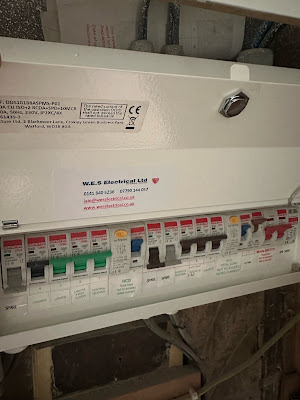A Comprehensive Guide to EPC and EICR Testing for Landlords in Paisley
As a landlord in Paisley, ensuring the safety, efficiency, and compliance of your rental properties is crucial. Among the key responsibilities you hold are maintaining the property's energy performance and electrical safety. This blog provides a detailed overview of two essential checks you need to perform regularly: Energy Performance Certificates (EPC) and Electrical Installation Condition Reports (EICR). Understanding these requirements will help you safeguard your tenants and property, comply with legal obligations, and enhance the value of your rental units.
Understanding EPCs (Energy Performance Certificates)
An Energy Performance Certificate (EPC) provides information about the energy efficiency of a property. It includes an energy efficiency rating (from A to G, with A being the most efficient), recommendations for improving energy efficiency, and an estimated cost of making these improvements.
Why EPCs Are Important for Landlords
- Legal Requirement: In Scotland, landlords are legally required to have a valid EPC for their properties. This certificate must be made available to potential tenants at the earliest opportunity.
- Energy Efficiency: An EPC helps identify how energy-efficient your property is and what improvements can be made to reduce energy consumption.
- Attracting Tenants: Properties with higher energy efficiency ratings are more attractive to tenants, as they indicate lower utility bills and a more comfortable living environment.
How to Obtain an EPC
To obtain an EPC, you need to hire an accredited energy assessor who will visit your property, conduct an assessment, and provide the certificate. The process includes:
- Assessment of Energy Use: The assessor evaluates how energy is used in the property, considering factors such as insulation, heating systems, and windows.
- Energy Efficiency Recommendations: The EPC will provide suggestions on how to improve energy efficiency, such as upgrading insulation or installing a more efficient heating system.
Understanding EICR (Electrical Installation Condition Report)
An Electrical Installation Condition Report (EICR) is a thorough inspection of a property's electrical systems to ensure they are safe and comply with current standards.
Why EICRs Are Important for Landlords
- Safety Compliance: Ensuring the electrical systems in your property are safe is critical to protecting your tenants from potential electrical hazards.
- Legal Requirement: Scottish law mandates that landlords conduct EICR testing at least once every five years or at the start of a new tenancy.
- Preventative Maintenance: Regular EICR testing helps identify and rectify potential issues before they become serious problems, potentially saving money on costly repairs and reducing the risk of electrical fires.
The EICR Process
During an EICR inspection, a qualified electrician will:
- Visual Inspection: Examine electrical components for visible signs of damage or wear.
- Testing: Conduct tests on circuits to ensure they are functioning correctly and safely, including checking for proper earthing and bonding.
- Reporting: Provide a detailed report outlining any issues found, the overall condition of the electrical installations, and recommendations for remedial actions.
The Importance of Using Qualified Professionals
For both EPC and EICR assessments, it is essential to use qualified and accredited professionals. Here’s why:
- Accuracy and Compliance: Accredited professionals have the expertise to conduct thorough and accurate assessments, ensuring compliance with legal standards.
- Safety: Using qualified professionals minimizes the risk of errors that could compromise the safety of your property.
- Credibility: Certificates issued by accredited professionals are recognized and trusted, providing peace of mind for both landlords and tenants.
Finding Qualified Professionals in Paisley
- For EPCs: Look for accredited energy assessors through government websites or local directories. Ensure they have the necessary credentials and experience.
- For EICRs: Use electricians approved by bodies such as the Scottish Joint Industry Board (SJIB). This ensures they are well-versed in current safety regulations and standards.
Conclusion
As a landlord in Paisley, ensuring your properties meet the required standards for energy efficiency and electrical safety is a critical part of your responsibilities. Regular EPC and EICR testing not only help you comply with legal requirements but also enhance the safety and attractiveness of your rental properties.
By engaging qualified professionals for these assessments, you can be confident that your properties are safe, energy-efficient, and legally compliant. This not only protects your investment but also ensures the well-being and satisfaction of your tenants.
Remember, prioritizing energy efficiency and electrical safety is not just about meeting legal obligations; it's about providing a secure and comfortable living environment for your tenants, ultimately leading to long-term rental success.





